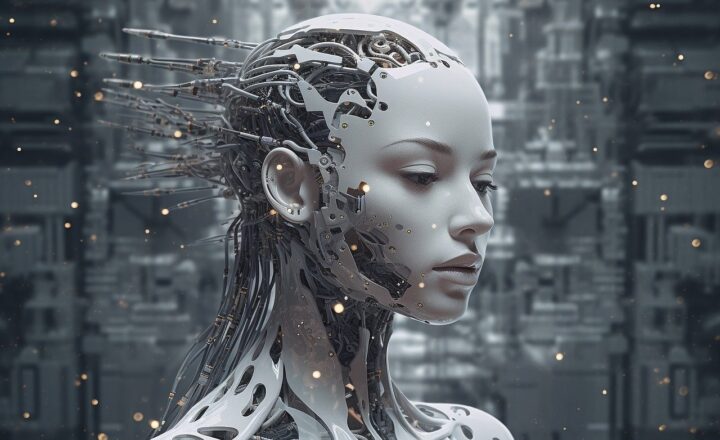Artificial Intelligence: The Tool That Will Shape Our Future Life
November 18, 2024

Artificial Intelligence (AI) is not just a buzzword; it is rapidly transforming how we live, work, and interact with each other. From automated customer service to predictive algorithms that personalize our digital experiences, AI is advancing at an unprecedented pace. In this article, we delve deep into what AI is, how it impacts various facets of our lives, and how it promises to shape our future in unimaginable ways.
1. Understanding Artificial Intelligence
Artificial Intelligence refers to the simulation of human intelligence processes by machines, particularly computer systems. These processes include:
- Learning: The capability to acquire information and rules for using it.
- Reasoning: The ability to utilize rules to reach approximate or definite conclusions.
- Self-correction: The ability to properly fix mistakes.
The term encompasses a variety of technologies, including machine learning, natural language processing (NLP), and robotics. In several industries, AI is already operating behind the scenes, optimizing processes, enhancing decision-making, and creating efficiencies previously thought unattainable.
2. The Current State of AI Technology
AI technology is currently employed in numerous sectors, revolutionizing traditional systems and allowing organizations to operate smarter and faster. Some notable applications include:
2.1 Healthcare
AI is making strides in healthcare with applications in diagnosing diseases through imaging technology, predicting patient outcomes, and even personalized medicine. For instance, AI algorithms can analyze medical images, such as X-rays and MRIs, with accuracy comparable to or surpassing that of human radiologists.
2.2 Transport
From self-driving cars to traffic management systems, AI plays a crucial role in the future of transportation. Autonomous vehicles use AI algorithms to navigate complex environments while optimizing safety and efficiency.
2.3 Finance
AI is reshaping the finance industry by streamlining services such as fraud detection, risk assessment, and algorithmic trading. By analyzing vast amounts of data in real-time, AI systems can help mitigate risks and enhance decision-making processes.
2.4 Education
In education, AI is being used to create personalized learning experiences. Adaptive learning platforms leverage AI algorithms to analyze student performance, offering tailored resources and suggestions that can dramatically improve learning outcomes.
3. The Future Potential of AI
As AI technology continues to grow, its potential applications are limited only by our imagination. Emerging trends hint at an AI-driven future with capabilities including:
3.1 Smart Cities
AI can help in creating smart cities with interconnected infrastructure that improves energy efficiency, enhances public transportation, and optimizes disaster response. With AI-driven analytics, cities can analyze data from a multitude of sources to improve urban planning tasks and enhance the quality of life for their citizens.
3.2 Enhanced Human-AI Collaboration
Rather than replacing human jobs, AI technologies aim to augment human capabilities. Collaborative robots (cobots) will work side by side with humans in industries like manufacturing and logistics, improving efficiency and safety without fully automating jobs.
3.3 AI in Governance
Governments can harness AI for optimizing public services, predictive policing, and enhancing citizen engagement through data analysis and automated systems. This could enhance decision-making processes, promoting transparency and improving quality of life.
4. The Ethical Considerations of AI
As we embrace AI in our daily lives, critical ethical concerns emerge, including:
4.1 Data Privacy
With AI systems handling vast amounts of personal data, ensuring data privacy becomes essential. Striking a balance between harnessing AI’s power and protecting individual privacy rights is paramount.
4.2 Bias and Fairness
AI systems can perpetuate existing societal biases if the data used to train them is biased. Ethical AI development must include fairness in data collection and algorithm design to prevent discrimination.
4.3 Job Displacement
While AI has the potential to create new job opportunities, it also raises concerns about job displacement in various sectors. Preparing the workforce through education and reskilling programs is crucial to mitigate potential negative impacts.
5. Conclusion
We stand on the brink of an unparalleled AI revolution, one that will inevitably reshape our world in ways we are only beginning to understand. The journey ahead requires collaboration among technologists, ethicists, and policymakers to balance innovation with ethical considerations. As a society, we must embrace these changes and actively engage in shaping the AI landscape, ensuring that the benefits are shared widely, paving the way for a future defined by progress and equitable access to technology.
The transformative power of AI lies not just in what it does today but in its potential to forge a fundamentally different tomorrow. If utilized responsibly, AI can be a powerful ally in addressing some of humanity’s most pressing challenges, ensuring that as we move forward into the future, we do so with optimism and hope.







